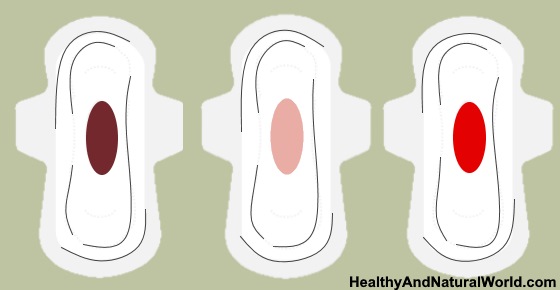Why Do I Fart So Much? Causes and Ways to Reduce Excessive Gas

If you have to constantly get rid of excessive gas during the day, you may wonder if it is normal to fart so much. Farting a lot can be embarrassing, especially if you are with others and you frequently need to break wind. There is the risk that farting will cause ripping noise and have a sulfur-like smell of rotten eggs. Along with farting so much, you may also suffer from abdominal cramping, digestive problems, or bloating.
BMI Calculator Chart: What is Can and Cannot Tell You

A BMI calculator chart (body mass index chart) can help to determine if you are overweight, obese, or having a healthy weight. Knowing if you have too much body fat can motivate you to make positive lifestyle changes to lose weight and improve your health. Being obese or overweight can cause a number of health problems including cardiovascular disease, diabetes, increased risk of chronic pain, and even cancer.
Vaginal Discharge Color – White, Yellow, Pink, Brown, and Green: What Does It Mean?

Normal vaginal discharge is usually a clear-white or whitish sticky fluid that changes in consistency in the menstrual cycle. Vaginal discharge color can also tell you something about the health of your vagina. For example, thick white discharge, yellow cervical mucus, or green vaginal discharge can mean an infection, especially if the labia is swollen and itchy.
Pain in Left Temple of Head: Causes of Headache in the Left Temple and Treatments

Pain in the left temple is often caused by simple things like not getting enough sleep, skipping meals, stress, anxiety, or tension. Even though the cause of temple pain is generally nothing to worry about, right or left temple pain can cause severe headaches. Very often, resting, placing a cold compress on your temple, or using relaxing essential oils can relieve pounding, pulsating, or dull pains in your temples.
Period Blood Color: Brown, Black, Red, Dark, And More – What It Means

The color of your period blood can be an important indicator of your general health. Normal period blood can be any color from brown at the start of your period to dark red in the middle of your period. However, the color of “normal” period blood can be light pink, bright red, rusty-brown, or orange. Sometimes, you may experience very dark, almost black period blood, or see signs of pink spotting before menstruation and wonder what it means.
Cloudy Urine: What Does It Mean and Is It a Reason for Concern?

There is a lot that the color of urine can tell about your health, and passing cloudy urine could mean that you are dehydrated or have an infection. Noticing cloudy urine once in a while is rarely a reason for concern. Usually, the symptoms go away quickly and your urine returns to the light straw-yellow color it should be.
Pinched Nerve in Shoulder Blade: Symptoms, Causes and Treatments

Shoulder blade pain can be caused by a pinched nerve in the upper or middle part of your spine. There are a number of reasons why nerves in your cervical and thoracic spine can become entrapped. Age-related conditions, arthritis, or a herniated disc can “pinch” a nerve in your upper back that radiates to your shoulder blade, causing mild to severe pain. Along with sharp aching shoulder pains, a pinched nerve can result in tingling, a burning sensation, or muscle weakness in the affected shoulder blade.
Cramping After Ovulation: What Does It Mean and Is it a Sign of Pregnancy?

Cramping after ovulation can occur as a regular part of your menstrual cycle, or it could mean that you are pregnant. Sometimes mid-cycle cramping can be connected with other issues related to your reproductive organs. Ovarian cysts, endometriosis, or pelvic congestion syndrome can all cause cramping between the end of ovulation and your next period.
Blood in Stool (Pooping Blood): What it Means and When to See a Doctor

Noticing blood in stool or spots of blood on toilet paper after you wipe usually means that there is bleeding in your digestive tract. Most people are alarmed when they see bright red blood in the toilet after a bowel movement. There are actually many reasons for pooping blood and not all of them mean that there is something seriously wrong.
